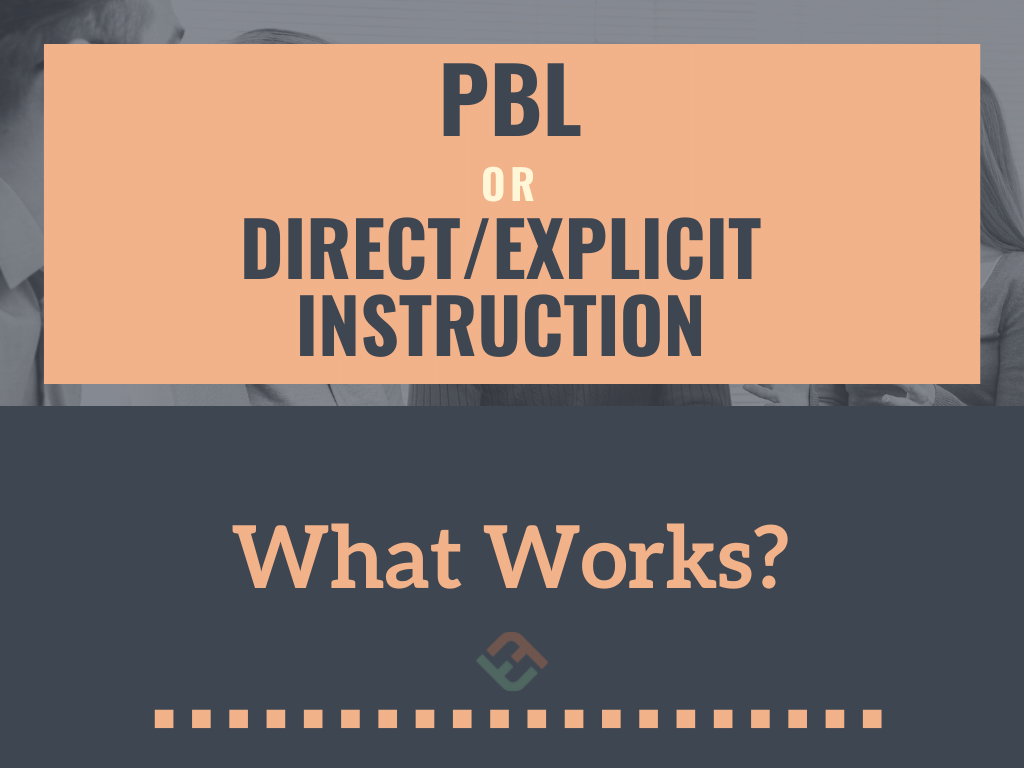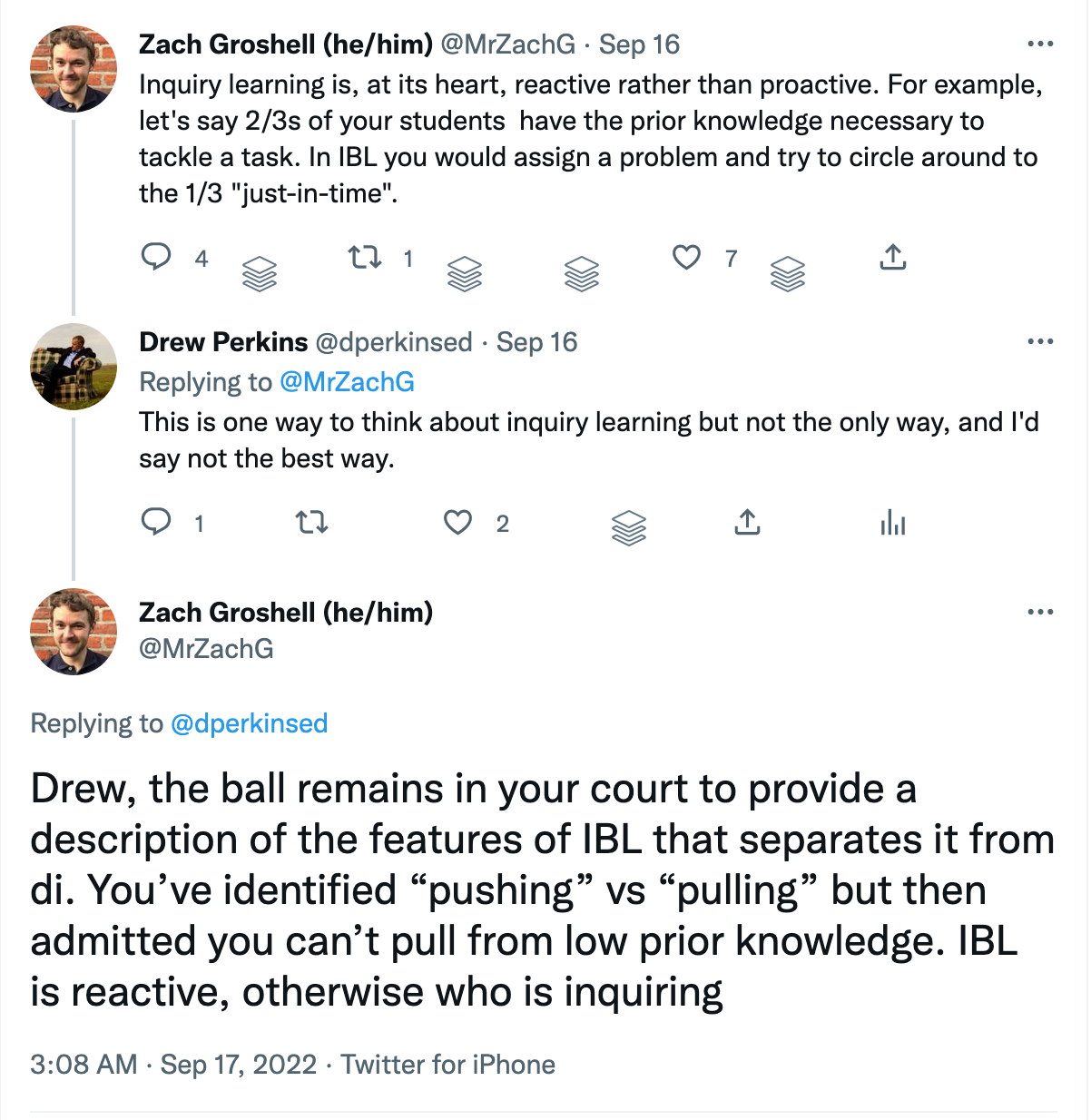
Direction Instruction Versus Project-Based Learning: Which Is More Effective?
by Drew Perkins, Director of TeachThought PD
One of my favorite things about leading TeachThought PD is that I get to host The TeachThought Podcast.
On our podcast, I get to engage with interesting thinkers, and often their books or other published works, in long-form heterodox conversations meant to help educators better prepare students for the modern world.
I try to find and host guests who are diverse in their thinking, (thus the description, ‘heterodox conversations’) and sometimes that means guests who might disagree with my views. The point isn’t to win an argument or to ‘own’ the other side. The point is to uncover the nuance and complexity of important issues ranging from pedagogy to social concerns and more.
As a staunch advocate of inquiry and PBL, I regularly find myself engaging and pushing back on those who, in my view, unfairly denigrate it on Twitter. One such interlocutor is Zach Groshell, an instructional coach and host of the Progressively Incorrect Podcast. Most of our interactions look like the exchange shown below although a few were a little more testy.
First, some clarification. Let’s agree that the definition of direct instruction is the explicit teaching of specific concepts or skills, usually through lectures, presentations, or demonstrations. Depending on the use-case, direct instruction can use the gradual release of responsibility model–show me, help me, let me–where students are directly ‘taught,’ then practice with support, then allowed or challenged to apply the learning on their own.
And as for a definition of project-based learning, let’s define it simply as learning through the design and execution of projects.

So when Zach reached out about a podcast discussion I was more than happy to accommodate the idea. Twitter is obviously a challenging place to parse out nuance and complexity and I wanted to learn more about Zach’s thinking and see where I might be wrong. What I anticipated was that this would be a useful conversation for us, but more importantly for those of you looking to grow your teaching. I’m quite pleased with how our conversation turned out as I do think it helps clarify some misconceptions and some pitfalls that can negatively affect student learning.
Is Project-Based Learning Better Than Direct Instruction–Or Other Approaches To Learning?
Spoiler alert, there is, or at least should be, significant overlap between the pedagogy of direct/explicit teaching and that of project-based and inquiry learning. Second spoiler alert, as I wrote about in What Traditionalists Get Wrong About Inquiry Teaching, we do both a disservice when we straw man or caricature them.
Project-Based Learning
1. Asks students to create a product that requires significant knowledge and understanding.
2. Asks students to identify and answer/learn the important questions in creating that product. Those questions should align with the desired knowledge and understandings.
Direct Instruction
1. Provides information that fully explains the concepts and
procedures that students are required to learn.
2. Learning is defined as a change in long-term memory.
Robust PBL includes, and in fact generally requires, quality instruction to help students learn the important knowledge and concepts that teachers should identify in the lesson planning process. It is the use of the ‘Need to Know list’ that helps students develop the vital problem-solving and critical thinking skill of identifying the important questions in doing something well.
I appreciate Zach’s willingness to engage with me in this conversation. I hope our discussion, and others in the archive and future guests, help you grow your craft. You can find this episode here on TeachThought PD, The TeachThought Podcast Ep. 309 PBL Or Direct/Explicit Instruction, What Works?, on Apple Podcasts, and any major podcast outlet. If you find it useful, please leave us a review or comment and share it with your friends and colleagues.
